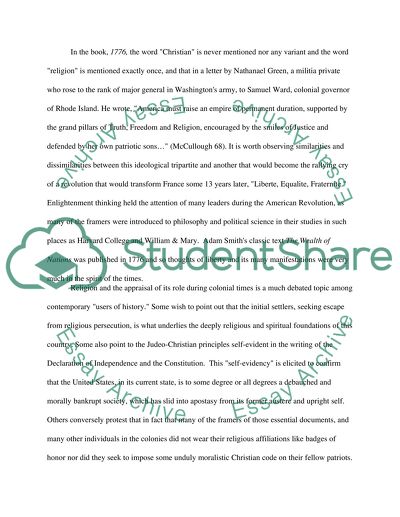Cite this document
(“1776 by David McCullough Book Report/Review Example | Topics and Well Written Essays - 1250 words”, n.d.)
Retrieved from https://studentshare.org/history/1518930-1776-by-david-mccullough
Retrieved from https://studentshare.org/history/1518930-1776-by-david-mccullough
(1776 by David McCullough Book Report/Review Example | Topics and Well Written Essays - 1250 Words)
https://studentshare.org/history/1518930-1776-by-david-mccullough.
https://studentshare.org/history/1518930-1776-by-david-mccullough.
“1776 by David McCullough Book Report/Review Example | Topics and Well Written Essays - 1250 Words”, n.d. https://studentshare.org/history/1518930-1776-by-david-mccullough.


